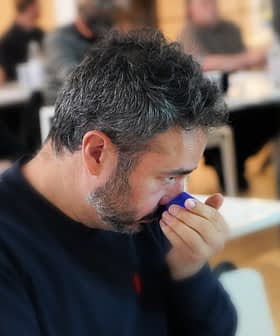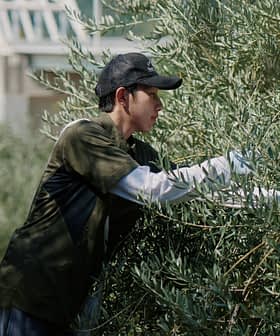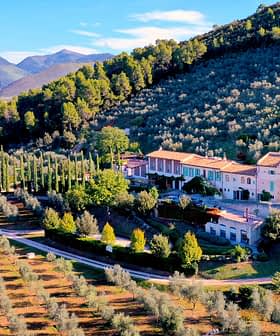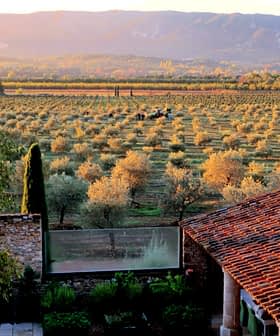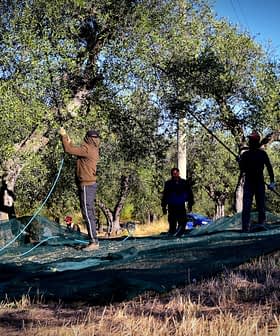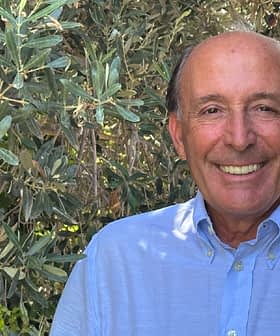Officials Urge Croatia's Tourism Operators to Showcase Award-Winning Olive Oils
The Maslina event celebrated the 20th anniversary of its publication with a panel discussion on olive oil as a tourist brand, featuring speakers from various sectors in the industry. Croatian olive growers are gaining worldwide recognition, with the country becoming one of the top winners at the NYIOOC World Olive Oil Competition in recent years despite submitting fewer samples due to climatic challenges.
“Olive oils from our small country are among the best in the world, and if I were a tourist, I would buy it as a souvenir,” said Meri Šilović.
The editor-in-chief of the Maslina (meaning ‘Olive’ in Croatian) trade magazine – highly influential in Croatia, Bosnia and Herzegovina and Montenegro – celebrated the 20th anniversary of its publication with a panel discussion about olive oil as a tourist brand.
As tourism grows in our region, as well as throughout Croatia, so does the demand for our premium olive oils.
The event was held in the Klis Olive Museum in Stella Croatica, a town 19 kilometers away from Split, the largest city in Dalmatia and the second largest in Croatia.
Speakers at the event included representatives of the ministries of tourism and agriculture, leaders of tourist boards, scientists and successful olive growers from central Dalmatia, including Tomislav Duvnjak (Vodice), Domagoj Živković (OPG Laurenta), Ivo Radojković (TO Zvir), Miroslav Ivić and Krešimir Uroda (OPG Uroda).
See Also:Istrian Officials Share Oleotourism Insights at Events in Spain and ItalyTonči Glavina, the state secretary in the Ministry of Tourism and Sport, was also in attendance. He is the son of the award-winning olive oil producer Ivan Glavina of OPG Glavina, which became the first procedure from Klis to win an award at the NYIOOC World Olive Oil Competition in 2023.
Glavina was born and raised in Klis and still helps his father and other family members cultivate olives and produce extra virgin olive oil.
He took the opportunity to congratulate all the Croatian olive growers awarded at the 2024 edition of the World Competition.
“I am particularly pleased that, in addition to the already world-famous olive growing destination of Istria, there are more extra virgin olive oils from Dalmatia that are gaining worldwide recognition,” he said.
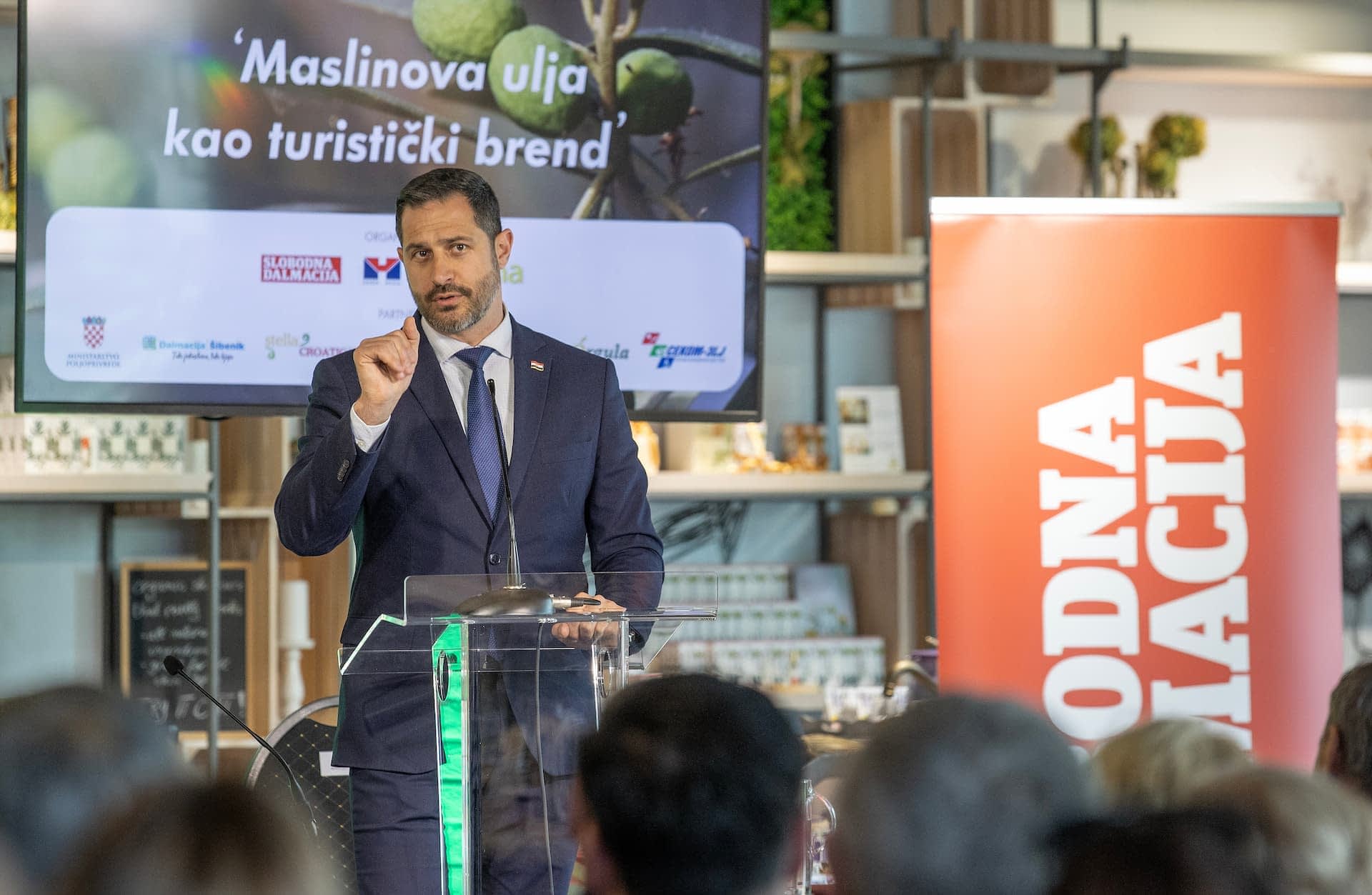
State Secretary Tonči Glavina
“This is the result of the hard work of our olive growers, as well as the associations and cooperatives of olive growers, who have also been working hard to promote Dalmatian oils in recent years,” Glavina added.
Mirela Žanetić, head of the professional panel for sensory evaluation of virgin olive oils from the Split-based Institute for Adriatic Culture and Karst Reclamation, told the conference that Dalmatian producers had not achieved award-winning quality overnight.
“We have been conducting scientific research on our autochthonous varieties for more than 20 years, and there are no plantations or intensive olive groves here,” she said. “All the secrets and wisdom lie in our climate and tradition.”
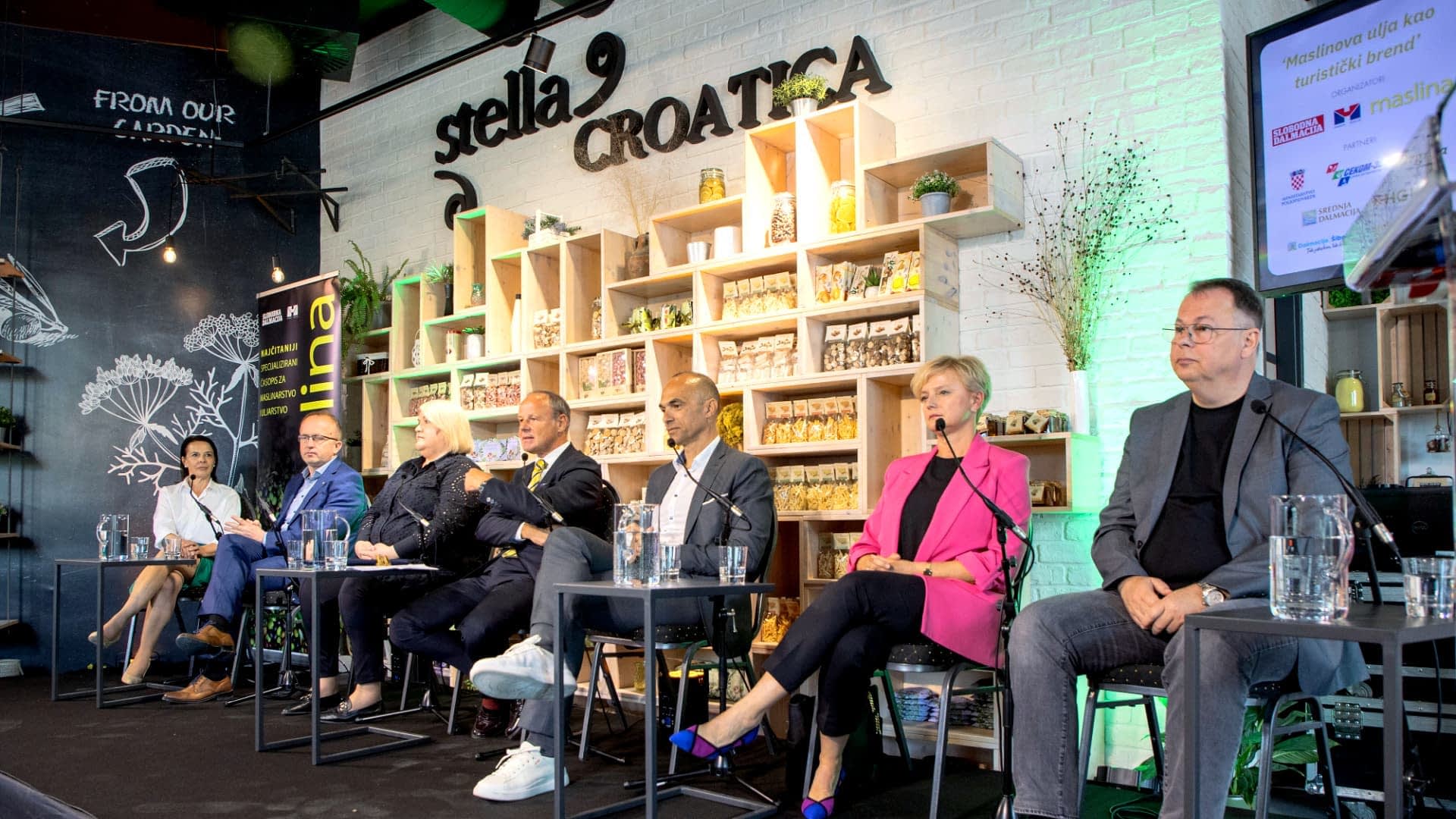
Panelists discussing olive oil as a tourist brand at Stella Croatica
Many producers here follow the live broadcast of the results from New York, which begins at 3:00 p.m. local time (9:00 a.m. in New York).
At one point, Uroda, a medium-intensity blend of Leccino, Oblica, Levantinka and Lastovka olives produced by OPG Uroda, appeared among the awardees.
“There’s mine,” exclaimed Krešimir Uroda, the owner of the award-winning oil. This is the third Gold Award for the olive grower from Pirovac.
He and his family grow 450 olive trees, and the Robinson house “Orkula” is part of the olive grove, which tourists often visit. “As tourism grows in our region, as well as throughout Croatia, so does the demand for our premium olive oils,” Uroda said.
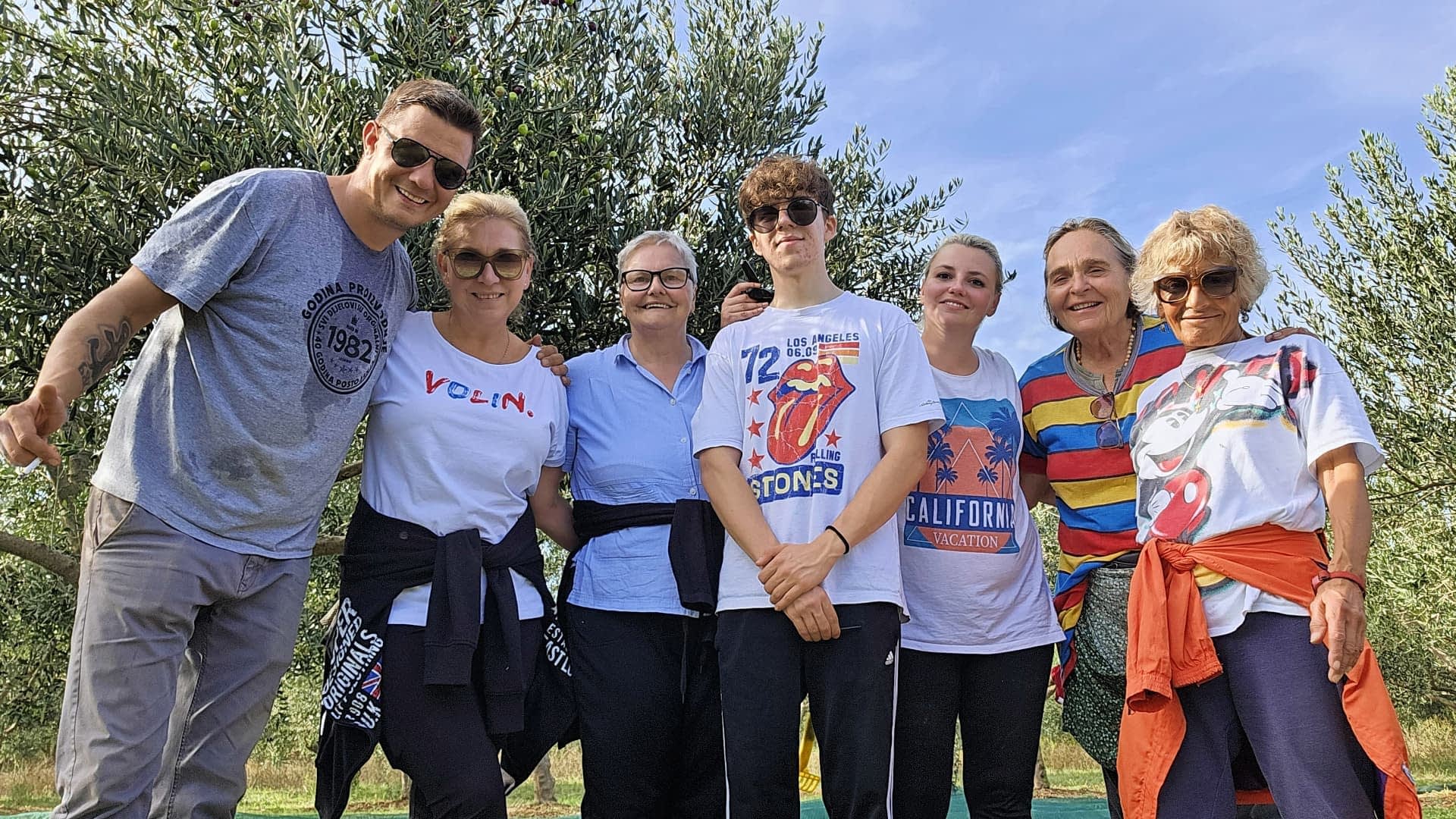
The Uroda family
He also founded the Ultra Extra Association with about 20 younger olive growers. “Only those whose oils do not exceed 0.5 percent acidity can become members of our association, while the criteria for extra virgin is 0.8 percent,” Uroda said.
They plan to obtain a “Proven Quality” certificate in cooperation with the relevant ministry, which will be displayed on the packaging of their oils.
“Such extra virgin olive oil could then be sold in pharmacies, health food stores, dynamic nutrition stores and similar outlets, which would open up new marketing opportunities for us,” said Uroda, who drinks two tablespoons of olive oil mixed with lemon juice each morning on an empty stomach. “It’s a medicine,” he added.
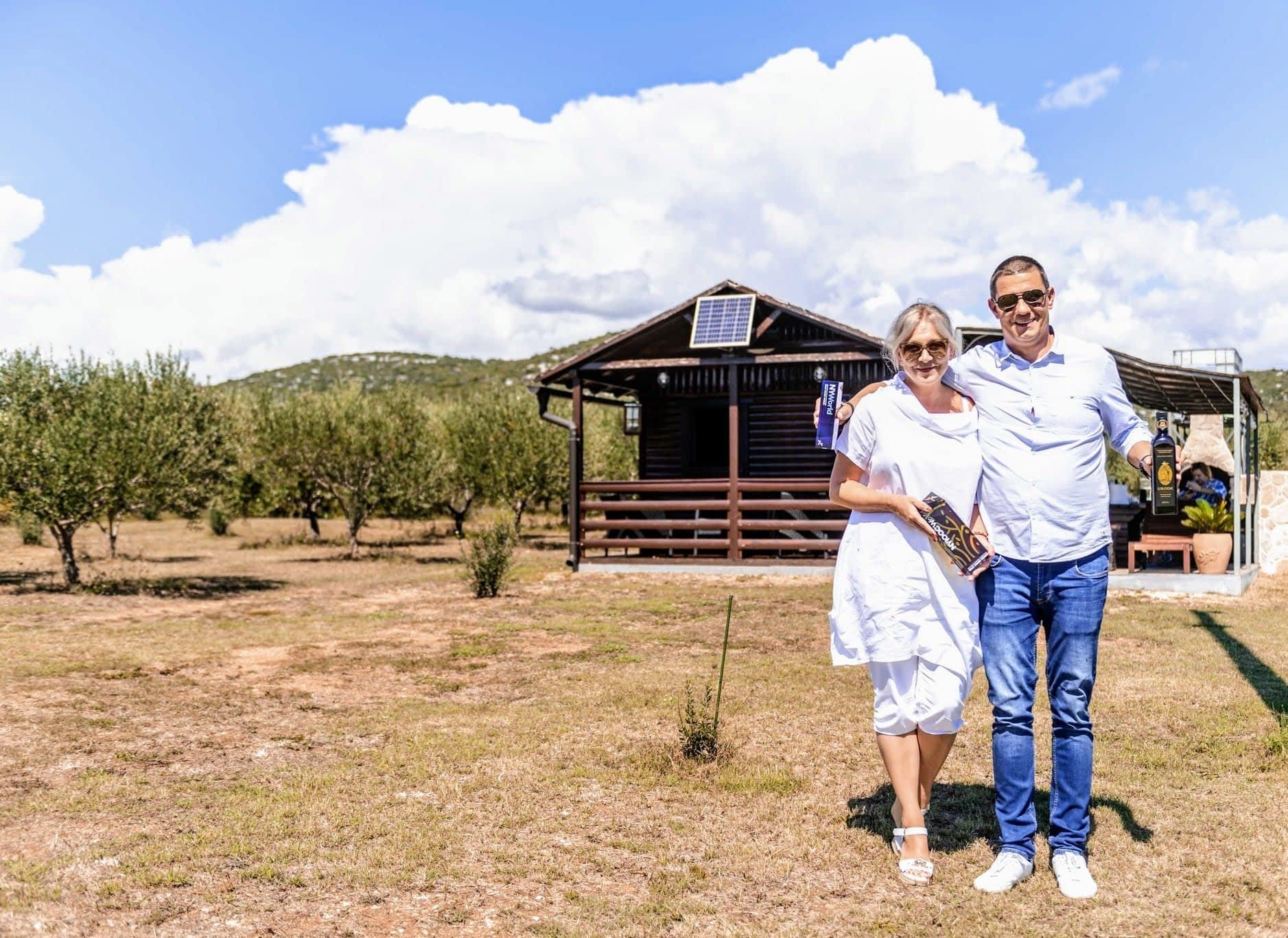
Krešimir Uroda and fiancee Đurđica
Croatia has about four million inhabitants and is visited annually by more than 20 million tourists who spend 108 million nights there.
During the Maslina, event officials and producers said winning awards at the NYIOOC has proven to be an effective way to promote olive oils as a tourist brand.
Since 2021, Croatia has become one of the winningest countries at the World Competition, partly due to a coordinated effort by Duvnjak to organize Dalmatian producers to send more local olive oil samples to the competition.
Year | Awards | Entries | Success Rate (%) |
2023 | 105 | 131 | 80 |
2022 | 98 | 107 | 90 |
2021 | 87 | 105 | 83 |
2020 | 49 | 60 | 82 |
However, due to climatic disasters and pests, a weaker crop and smaller quantities of high-quality extra virgin oils, Croatian producers submitted fewer samples this year but still achieved excellent results.
With the judging set to continue through the start of May, producers from Croatia have already won 74 awards from 97 entries, according to the Official Guide and the Olive Oil Times World Ranking. Only Italy and the United States producers have received more awards this year.


